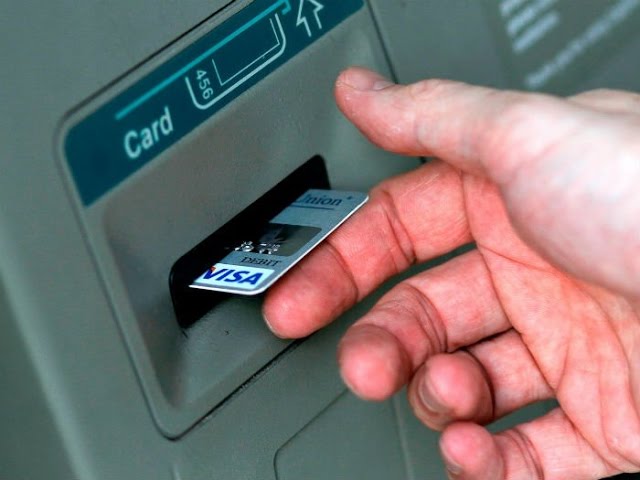
Choosing the Right Bank
When it comes to managing your finances, choosing the right bank is a crucial decision. Your bank plays a significant role in your financial well-being, so it’s essential to select one that aligns with your specific needs and goals. With numerous options available, finding the perfect bank can be a daunting task. In this comprehensive guide, we’ll walk you through the factors to consider when choosing a bank that suits your financial needs.
Determine Your Financial Goals
Before diving into the selection process, it’s essential to identify your financial goals. Are you looking for a bank to store your savings, open a checking account for daily expenses, secure a loan for a major purchase, or invest in the stock market? Your financial objectives will largely influence the type of bank that best serves your needs. For example, if you aim to grow your wealth through investments, you’ll want a bank that offers investment services and financial planning.
Consider Accessibility
The convenience of accessing your bank is paramount. Look for a bank with branches and ATMs located near your home or workplace. If you frequently travel, it’s also important to check if your bank has a widespread network or partnerships with other banks to provide fee-free ATM access. In today’s digital age, online and mobile banking services have become increasingly important. Ensure your chosen bank offers a user-friendly and secure online platform to manage your accounts, transfer funds, and pay bills from the comfort of your home.
Evaluate Fees and Charges
Banks often charge fees for various services, such as maintaining a checking account, using an ATM outside their network, or overdrafts. It’s crucial to understand the fee structure of a bank and choose one that aligns with your financial habits. Some banks offer fee waivers if you meet certain criteria, like maintaining a minimum account balance or setting up direct deposits. Read the fine print and ask about any hidden charges to avoid unpleasant surprises down the road.
Assess Interest Rates
Interest rates play a significant role in your financial growth. If you’re planning to keep a substantial amount of money in a savings or checking account, it’s crucial to find a bank that offers competitive interest rates. Low interest rates can erode the value of your money over time. Be sure to compare the interest rates on savings accounts, certificates of deposit (CDs), and other investment options offered by different banks.
Investigate Customer Service
Exceptional customer service is a critical aspect of a reliable bank. You want to be confident that you can reach out to your bank with any questions or concerns and receive prompt and helpful assistance. Look for banks with 24/7 customer support and consider reading customer reviews to get an idea of the bank’s reputation for customer service. Friendly and knowledgeable staff can make your banking experience smoother and more pleasant.
Research the Range of Services
Different banks offer a wide range of financial products and services. Some banks specialize in specific areas, such as mortgages, while others provide a comprehensive suite of financial services, including investment management, retirement planning, and insurance products. Think about your current and future financial needs, and choose a bank that can cater to them. It’s often more convenient to have all your financial accounts in one place, so explore the bank’s offerings beyond basic banking services.
Examine Security Measures
Your financial security is paramount. Ensure that the bank you choose has robust security measures in place to protect your personal and financial information. Banks should offer encryption, multi-factor authentication, and fraud detection to safeguard your accounts. Check if the bank is a member of the Federal Deposit Insurance Corporation (FDIC) in the United States or an equivalent organization in your country. This insurance provides peace of mind by guaranteeing your deposits up to a certain amount.
Review Account Terms and Conditions
Carefully read and understand the terms and conditions of the accounts you’re considering. This includes minimum balance requirements, transaction limits, and any restrictions on withdrawals or transfers. Make sure the account terms align with your financial habits and goals. Additionally, review the bank’s policies on account closures, fees, and overdraft protection to avoid any surprises in the future.

Investigate Credit and Loan Options
If you anticipate needing credit or loans in the future, it’s advantageous to choose a bank that offers these services with favorable terms. Research the bank’s interest rates, loan options, and credit card offerings. A bank that can provide you with competitive rates and a hassle-free application process for loans and credit can be a valuable asset in achieving your financial objectives.
Check for Additional Benefits
Some banks offer additional perks to attract customers, such as cashback rewards, credit card benefits, and discounts on financial products. Consider whether these extras align with your needs and lifestyle. These benefits can add value to your banking relationship and save you money in the long run. If you found this article useful, you may also visit FreeWordCentre to read more about choosing the right bank for your financial needs.
Conclusion
Choosing the right bank for your financial needs is a significant decision that can greatly impact your financial well-being. Take the time to assess your goals, compare banks, and consider the factors discussed in this guide. The perfect bank for you should align with your financial objectives, provide accessibility and convenience, offer competitive rates and fees, and prioritize your financial security. Remember that your financial needs may evolve over time, so periodic reviews of your banking relationship can help ensure you continue to receive the best services for your financial journey.





